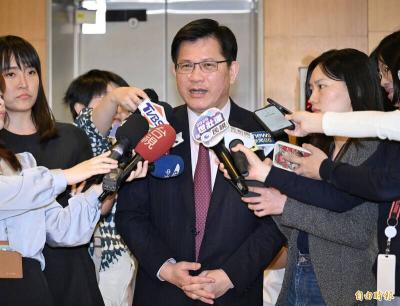Council of Labor Affairs (CLA) officials were left embarrassed at the legislature yesterday when none of them could provide a clear answer to lawmakers’ questions on which industries and workers would be affected by the economic cooperation framework agreement (ECFA).
CLA Minister Jennifer Wang (王如玄) and other council officials came under fire during the legislature’s Social Welfare and Environmental Hygiene Committee meeting when lawmakers fired questions at her about recent events.
Wang and other officials yesterday tried to downplay the Kaohsiung City Government’s refusal to make service staff at its employment center memorize government ECFA promotional material designed to enable them to better answer questions such as whether the signing of an ECFA will cause unemployment to rise.
However, when Democratic Progressive Party (DPP) legislator Liu Chien-kuo (劉建國) asked council officials to raise their hand if they knew what effects the ECFA would have on the nation’s various industries and workforce, no hands went up.
“What gives the CLA the right to order employment center service staff to memorize material about the ECFA if CLA officials themselves don’t even know it?” Liu asked.
DPP Legislator Huang Sue-ying (黃淑英) also criticized the council for promoting the ECFA at a time when there is still no consensus over the signing of the agreement.
“Workers who visit the employment centers are looking for [a job that puts] food on the table. You can’t just paint them a picture of a bowl of rice,” she said.
In defense of the council’s policies, Wang said that the council was not seeking to further its own interests or to pick a fight with the Kaohsiung City Government, but to ensure workers understand how signing the ECFA could potentially impact them.
“As civil servants they [employment center staff] are responsible for informing workers about how the government is preparing to help them to deal with the potential adverse effects of free trade,” she said.

Taiwan would welcome the return of Honduras as a diplomatic ally if its next president decides to make such a move, Minister of Foreign Affairs Lin Chia-lung (林佳龍) said yesterday. “Of course, we would welcome Honduras if they want to restore diplomatic ties with Taiwan after their elections,” Lin said at a meeting of the legislature’s Foreign Affairs and National Defense Committee, when asked to comment on statements made by two of the three Honduran presidential candidates during the presidential campaign in the Central American country. Taiwan is paying close attention to the region as a whole in the wake of a

Chinese Nationalist Party (KMT) Chairman Eric Chu (朱立倫), spokeswoman Yang Chih-yu (楊智伃) and Legislator Hsieh Lung-chieh (謝龍介) would be summoned by police for questioning for leading an illegal assembly on Thursday evening last week, Minister of the Interior Liu Shyh-fang (劉世芳) said today. The three KMT officials led an assembly outside the Taipei City Prosecutors’ Office, a restricted area where public assembly is not allowed, protesting the questioning of several KMT staff and searches of KMT headquarters and offices in a recall petition forgery case. Chu, Yang and Hsieh are all suspected of contravening the Assembly and Parade Act (集會遊行法) by holding

President William Lai (賴清德) has appointed former vice president Chen Chien-jen (陳建仁) to attend the late Pope Francis’ funeral at the Vatican City on Saturday on his behalf, the Ministry of Foreign Affairs said today. The Holy See announced Francis’ funeral would take place on Saturday at 10am in St Peter’s Square. The ministry expressed condolences over Francis’ passing and said that Chen would represent Taiwan at the funeral and offer condolences in person. Taiwan and the Vatican have a long-standing and close diplomatic relationship, the ministry said. Both sides agreed to have Chen represent Taiwan at the funeral, given his Catholic identity and

Taiwan would welcome the return of Honduras as a diplomatic ally if the next president of that country decides to make such a move, Minister of Foreign Affairs Lin Chia-lung (林佳龍) said today. “We would welcome Honduras if they want to restore diplomatic ties with Taiwan after their elections,” Lin said during a legislative hearing. At the same time, Taiwan is paying close attention to the Central American region as a whole, in the wake of a visit there earlier this year by US Secretary of State Marco Rubio, Lin said. Rubio visited Panama, El Salvador, Costa Rica and Guatemala, during which he